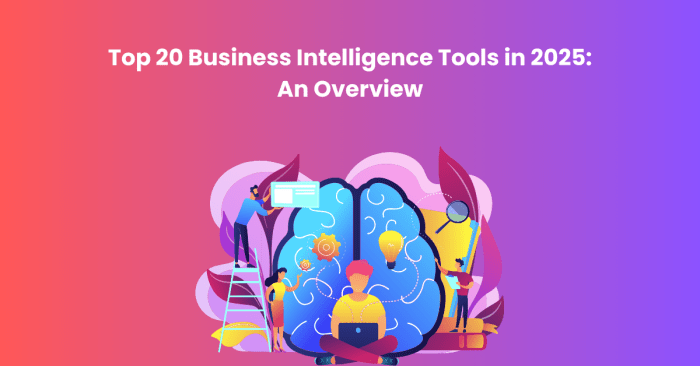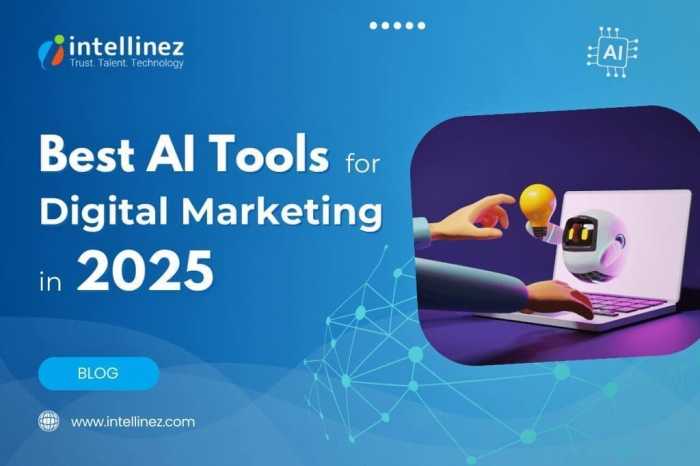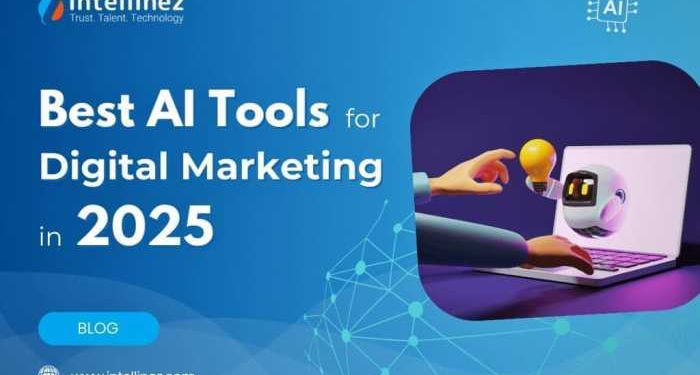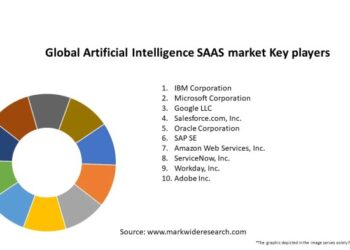As we delve into the realm of Best Market Intelligence Platforms for 2025, a world of cutting-edge tools and strategies unfolds before us. Businesses are on the brink of revolutionizing their decision-making processes with the help of these platforms, paving the way for unprecedented growth and success.
Let's explore the key features, top platforms, emerging technologies, and integration capabilities that will shape the landscape of market intelligence in the coming years.
Overview of Market Intelligence Platforms
Market intelligence platforms are tools that gather, analyze, and present relevant data and insights related to a specific market or industry. These platforms utilize various sources of information such as consumer behavior, competitor analysis, market trends, and economic indicators to help businesses make informed decisions and stay competitive in the market.Using market intelligence platforms is crucial for businesses as it allows them to have a deeper understanding of market dynamics, identify potential opportunities and threats, and predict future trends.
By leveraging the data and insights provided by these platforms, organizations can develop effective strategies, optimize their marketing efforts, and ultimately enhance their overall performance and profitability.Various industries benefit from market intelligence platforms, including but not limited to:
1. Retail
Retailers use market intelligence platforms to track consumer preferences, monitor competitor pricing, and optimize inventory management.
2. Healthcare
Healthcare providers utilize these platforms to analyze patient demographics, identify emerging healthcare trends, and improve service delivery.
3. Financial Services
Banks and financial institutions rely on market intelligence platforms to assess market risks, identify investment opportunities, and enhance customer engagement.
4. Technology
Tech companies use these platforms to monitor industry trends, analyze customer feedback, and stay ahead of competitors in terms of product development and innovation.
Key Features of Market Intelligence Platforms
- Real-time data tracking and analysis
- Competitor benchmarking and analysis
- Market trend forecasting
- Consumer behavior analysis
- Customizable reporting and dashboards
Key Features to Look for in Market Intelligence Platforms
When considering a market intelligence platform, there are several key features that you should look for to ensure that you are getting the most out of your investment. These features can help you make informed decisions, stay ahead of the competition, and drive business growth.
Real-Time Data Updates
Real-time data updates are crucial for market intelligence platforms as they provide the most up-to-date information on market trends, consumer behavior, and competitive landscape. This feature allows businesses to react quickly to changes in the market and make timely decisions based on the latest insights.
- Instant access to real-time data
- Ability to track changes as they happen
- Stay informed about market shifts and emerging trends
Scalability Options
Scalability is another important feature to consider when choosing a market intelligence platform. Scalable platforms can grow with your business and adapt to changing needs, ensuring that you can continue to access the insights you need as your business expands.
- Flexible pricing plans based on usage
- Ability to add or remove features as needed
- Support for large volumes of data and users
Top Market Intelligence Platforms for 2025

When it comes to market intelligence platforms for 2025, there are several top contenders that stand out in the industry. These platforms offer a range of features and capabilities to help businesses make informed decisions and stay ahead of the competition.
Let's take a look at some of the leading market intelligence platforms and compare their pricing models and user interfaces.
List of Leading Market Intelligence Platforms:
- 1. Marketo
- 2. Salesforce Einstein Analytics
- 3. Tableau
- 4. IBM Watson Studio
- 5. QlikView
Comparison of Pricing Models:
Each market intelligence platform has its own unique pricing model, which can vary based on factors such as the number of users, features included, and level of customization. Here is a comparison of the pricing models of the top platforms:
| Platform | Pricing Model |
|---|---|
| Marketo | Subscription-based pricing with tiered plans based on company size |
| Salesforce Einstein Analytics | Usage-based pricing with additional costs for advanced features |
| Tableau | Perpetual license pricing with options for cloud-based deployment |
| IBM Watson Studio | Custom pricing based on specific business requirements and usage |
| QlikView | Subscription-based pricing with add-ons for extra functionalities |
User Interface and Ease of Use:
When it comes to user interface and ease of use, the top market intelligence platforms focus on providing intuitive dashboards and tools that are easy to navigate and understand. Here's a brief overview of the user interface and ease of use of the top platforms:
- Marketo:Offers a user-friendly interface with drag-and-drop functionality for creating custom reports and dashboards.
- Salesforce Einstein Analytics:Provides a visually appealing interface with predictive analytics capabilities for data-driven insights.
- Tableau:Known for its interactive data visualization tools that make complex data easy to interpret and analyze.
- IBM Watson Studio:Offers a collaborative environment with AI-powered tools for data exploration and model building.
- QlikView:Features a responsive design that allows users to access and interact with data on any device seamlessly.
Emerging Technologies Shaping Market Intelligence Platforms
Artificial intelligence (AI) is revolutionizing market intelligence platforms by enabling advanced data analysis and predictive capabilities. Machine learning plays a crucial role in enhancing the capabilities of market intelligence platforms by allowing them to learn from data patterns and make informed decisions.
Automation is streamlining the process of gathering and analyzing data in market intelligence platforms, saving time and resources while improving accuracy.
Role of Artificial Intelligence in Market Intelligence Platforms
AI algorithms in market intelligence platforms can analyze vast amounts of data quickly and accurately, identifying trends and insights that humans might miss. By leveraging AI, these platforms can provide real-time data analysis, predictive modeling, and personalized recommendations to users, helping businesses make data-driven decisions effectively.
Machine Learning in Market Intelligence Platforms
Machine learning algorithms enable market intelligence platforms to adapt and improve over time by learning from data inputs. These algorithms can identify patterns, correlations, and anomalies in data, allowing for more accurate predictions and insights. By continuously refining their models, market intelligence platforms can provide users with up-to-date and relevant information to support strategic decision-making.
Automation for Data Gathering and Analysis
Automation tools in market intelligence platforms streamline the process of data collection, cleansing, and analysis. By automating repetitive tasks, such as data extraction from multiple sources or report generation, these platforms can free up valuable time for analysts to focus on interpreting insights and developing actionable strategies.
Automation also reduces the risk of human error and ensures data consistency across different sources.
Customization and Integration Capabilities
Customization and integration capabilities play a crucial role in the effectiveness of market intelligence platforms. These features allow businesses to tailor the platform to their specific needs and seamlessly integrate it with other tools in their tech stack.
Importance of Customization Options
Customization options in market intelligence platforms enable companies to personalize the data and insights they receive. This customization can include choosing specific metrics to track, setting up custom alerts, or creating unique reports that align with the organization's goals and KPIs.
By tailoring the platform to their requirements, businesses can make more informed decisions and drive strategic growth.
Examples of Integration with Business Tools
Market intelligence platforms can integrate with a variety of other business tools to streamline operations and enhance productivity. For instance, these platforms can seamlessly connect with customer relationship management (CRM) systems to provide sales teams with valuable insights on customer behavior.
They can also integrate with marketing automation tools to optimize marketing campaigns based on market trends and competitor analysis.
Benefits of a Customizable Dashboard
Having a customizable dashboard in a market intelligence platform offers numerous benefits to users. A customizable dashboard allows businesses to visualize data in a way that is most relevant to them, making it easier to interpret and act upon. Users can choose which metrics to display, rearrange widgets based on priority, and personalize the layout to suit their preferences.
This level of flexibility ensures that users can quickly access the most critical information and stay informed in real-time.
Last Recap

In conclusion, the evolution of market intelligence platforms is set to redefine the way businesses operate, offering unparalleled insights and opportunities for growth. Embracing these advancements will undoubtedly lead to a competitive edge in the ever-changing market landscape.
FAQ Corner
What sets market intelligence platforms apart from other analytics tools?
Market intelligence platforms focus on providing industry-specific insights and competitor analysis, offering a more tailored approach to decision-making.
How do real-time data updates enhance the effectiveness of market intelligence platforms?
Real-time data updates ensure that businesses have access to the most current information, enabling quicker responses to market changes and trends.
Can market intelligence platforms be integrated with CRM systems?
Yes, many market intelligence platforms offer integration capabilities with CRM systems to streamline data management and enhance customer insights.
Are there any free market intelligence platforms available for small businesses?
Some market intelligence platforms offer free versions with limited features, making them suitable for small businesses with budget constraints.












